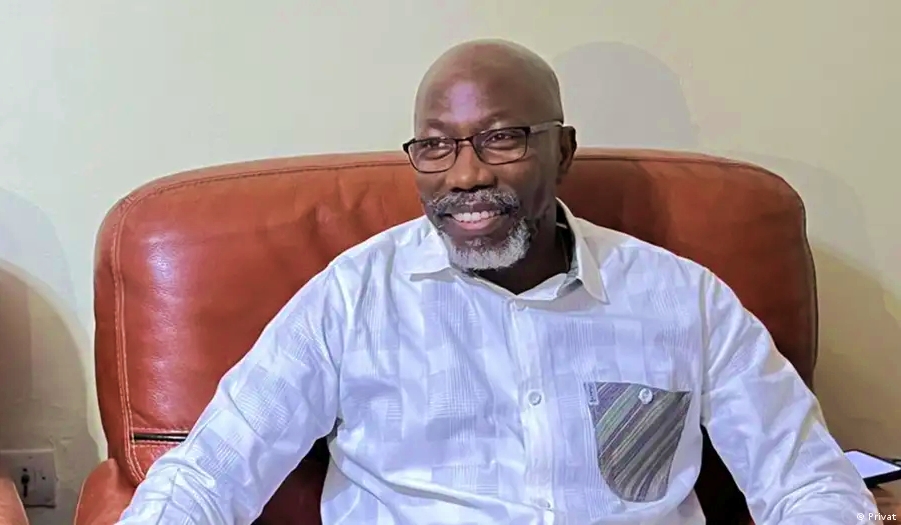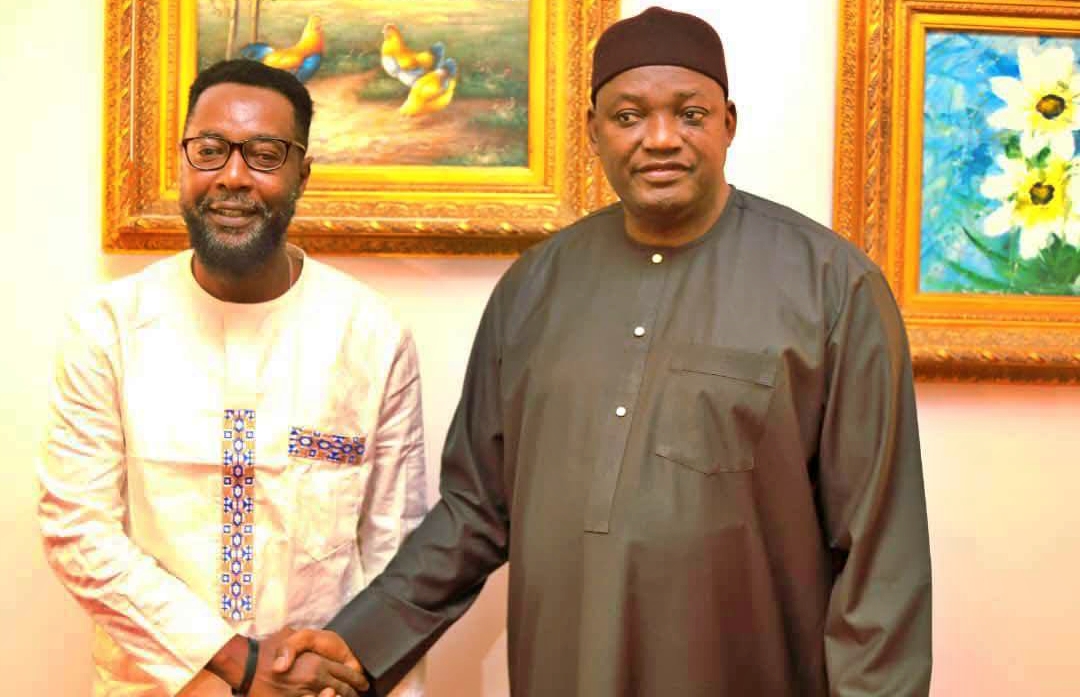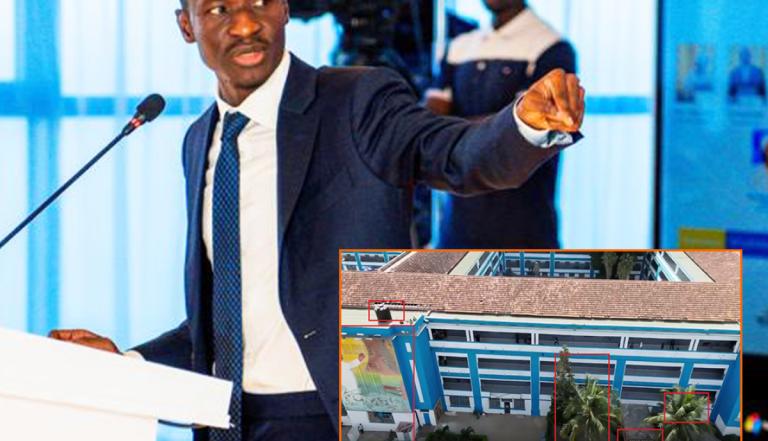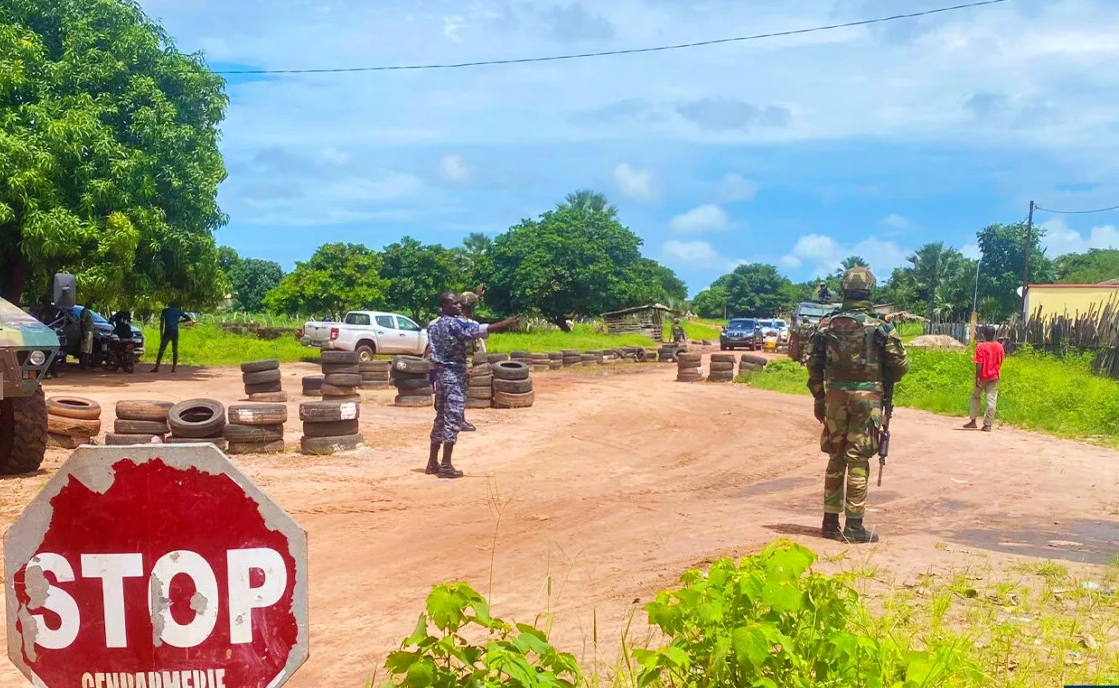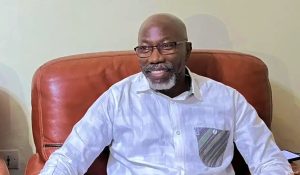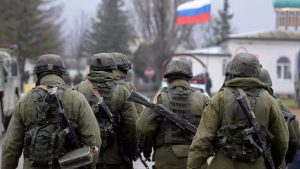Gambiaj.com – (BANJUL, The Gambia) – In a concerted effort to address long-standing border disputes and promote peace, the National Border Management Commission (CNGF) of Senegal and The Gambia organized an awareness session on Wednesday for residents of the villages of Touba Trankil in Senegal’s Bignona region and Darsilami in The Gambia. The session aimed to raise awareness about the ongoing efforts to resolve land disputes and reinforce good neighborly relations along the shared border.
The meeting, part of a broader initiative by the Senegalese-Gambian Joint Border Management Commission, follows recommendations made during a bilateral meeting held on May 29-30 in Dakar. The goal was to advance the Abuja road map, which outlines strategies for reaffirming the border and fostering cross-border cooperation between the two nations.
Colonel Pape Bécaye Fall, a member of the commission, emphasized the significance of the meeting. “Several recommendations were made, including raising awareness among border populations on the processes involved in border demarcation,” he said. While progress has been made, he acknowledged ongoing challenges in managing the border region, noting that demarcating boundaries is essential for both nations’ safety and security.
Senegal and The Gambia have mobilized experts and established joint commissions to oversee the border demarcation process, which aims to resolve lingering disputes. Colonel Fall underscored that boundaries are not meant to restrict mobility but rather to serve as markers of cooperation, likening them to bridges rather than barriers. “It’s for everyone’s safety to know the limits that should not be crossed,” he said.
The Gambian delegation, led by Saffie Sankareh Farage, chairperson of The Gambia’s Boundary Commission, reiterated the importance of these efforts for regional peace. “We are aware of the difficulties that hinder our actions and we will iron them out,” Farage stated, adding that the Gambian and Senegalese commissions share a common approach to ensuring peace along the border.
The awareness session was designed to engage local communities directly, allowing residents to express their views and offer suggestions on how best to manage the border disputes. Farage noted that such inclusivity would help smooth the commission’s efforts to resolve the land conflicts and strengthen cross-border ties.
The joint commission’s approach is particularly vital in light of the cultural and familial connections between communities on both sides of the border. As Thierno Oumar Barry of the Senegalese-Gambian Permanent Secretariat pointed out, “The languages spoken in Darsalame and Touba Trankil are understood on both sides, and the religious practices are the same in our two countries.”
This shared cultural heritage, Barry said, has fostered an environment conducive to dialogue, making it easier for the two commissions to work together toward peaceful resolution.
Local leaders and residents from both villages lauded the initiative, emphasizing the importance of maintaining peace in their communities. Awa Sagna, speaking on behalf of the women of Darsalame, said, “If peace reigns in Senegal, it will impact Gambia. And if peace reigns in Gambia, it will be the same in Senegal.”
Fatou Diallo, representing the women of Touba Trankil, echoed this sentiment, stating, “This meeting attests to the good relations now maintained by the communities of Darsalame and Touba Trankil.”
The awareness campaign is expected to continue as part of ongoing efforts by both nations to finalize the demarcation of the border, ensuring peace and security for communities along the shared boundary.



